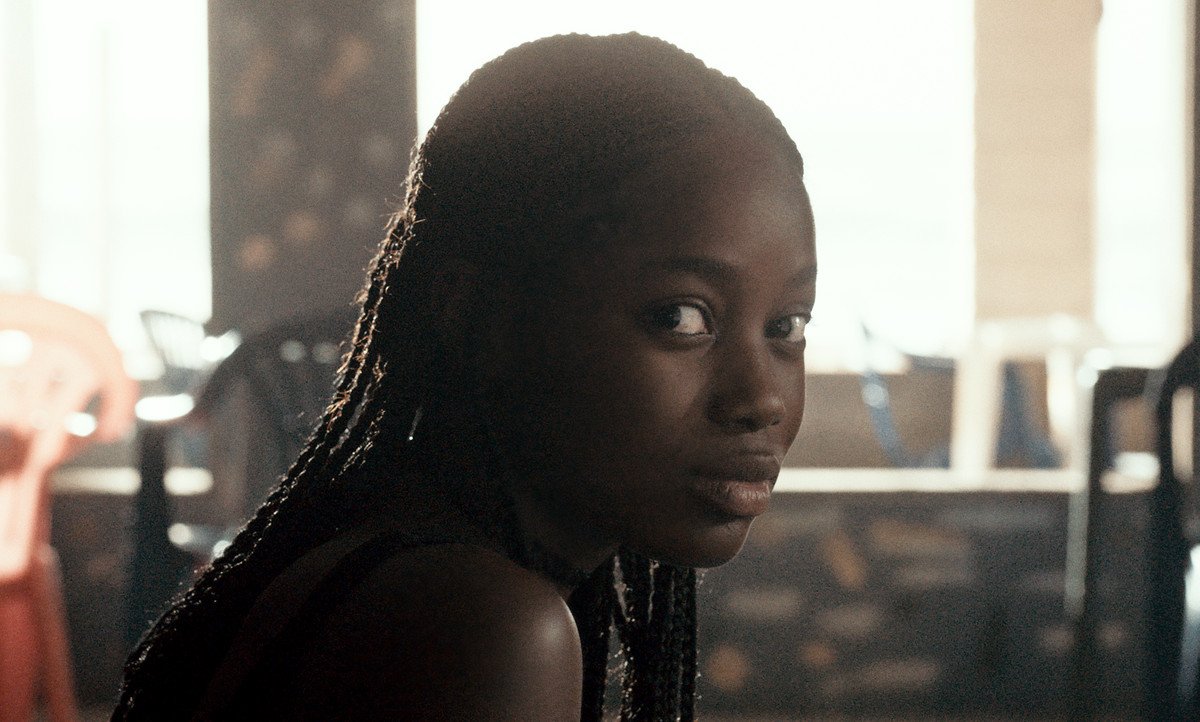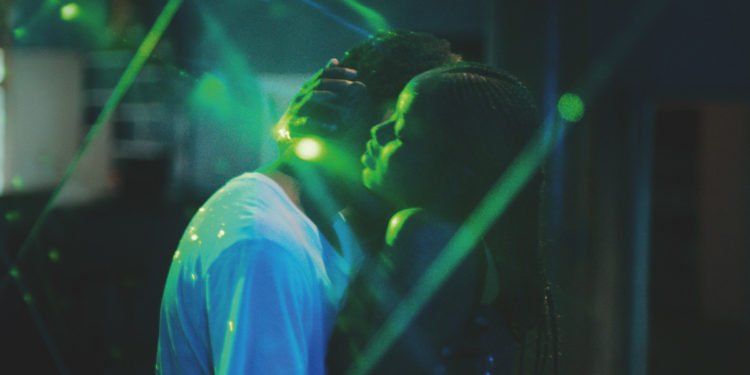The ocean’s ceaseless motion, seemingly bottomless depths, and vast wealth of life and death can be seen as beautiful, terrifying, or both. The same description could apply to Mati Diop’s debut feature Atlantics, which uses the ocean to bind its stories together. Atlantics arrived on Netflix after picking up the Grand Prix at this year’s Cannes Film Festival. (Notably, Diop is the first black woman director to compete at Cannes.) Equal parts romance, ghost story, and social commentary, it touches on the same sense of vast unknowableness that makes the sea such a potent, lasting metaphor.
In a suburb of Senegal’s capital, Dakar, a futuristic tower stretches into the sky. At its base, the construction workers who built it rail against the entrepreneur who owns it, demanding the three months of pay they’re owed. Among them is Souleiman (Ibrahima Traoré), who soon slips away from the protest to meet with his sweetheart, Ada (Mame Bineta Sane). But their romance is short-lived. Souleiman sets sail for Europe with his fellow workers in search of better employment, without saying a word to Ada. Ada, meanwhile, is a few days away from being married to Omar (Babacar Sylla), a wealthy man she doesn’t love. When she hears Souleiman is gone, she can’t believe it. Would he really leave her like that, or does he assume he’ll be able to return?
The absence of Souleiman and his fellow travelers leaves a gap in the city that shifts the space around it. Ada’s heartbreak, and that of all the other young women left alone, is an obvious effect. Less obvious is the way Diop shifts the overarching sense of longing — Ada’s for Souleiman, and for a culture where she doesn’t have to have her virginity proven, Souleiman’s for a better life and more opportunity — into something supernatural.

The ocean is inescapable, given Dakar’s position on a peninsula, and it connects their stories, both in the way it physically separates Ada and Souleiman from different lives and from each other, and as an inexorable force. The waves pull the two lovers (and countless others) apart, but the ocean’s perpetual return to the shore suggests a possible reunion, as well. Maybe someday, Souleiman will reappear.
Is he truly gone? Ada’s friends presume so, as the journey overseas is hazardous, and often fatal. But he remains in Ada’s heart, and when Ada and Omar’s bridal bed is set on fire on their wedding night, the police suspect Souleiman is the arsonist. Soon after, Ada begins receiving texts from someone claiming to be her departed love, and a mysterious fever begins to sweep through the women whose loved ones left on that same boat.
Diop, however, never turns her gaze outward toward Europe, or past the endless waves that constantly draw Ada’s attention. Instead, she focuses on Ada, underlining the cause and effect of Souleiman’s departure in a commentary on why people leave their home countries in search of opportunities abroad, and weaving that seamlessly into the central love story and its ghostly trappings.

Diop reveals the nature of the fever later, suggesting the possibility that those who died at sea may not completely be gone from this earth with that same slow certainty. She uses mirrors to play with viewers’ conception of what may or may not be real, capturing both what the characters wish to see, and what’s actually occurring. The entire film unfolds in that dreamy way, shot starkly enough that it doesn’t romanticize the circumstances that have forced Ada and Souleiman apart, but beautifully enough to keep the film from feeling like poverty porn.
Atlantics feels so earnest in part due to the grace with which Sane and Traoré (both first-timers) handle their changing characters. The story develops slowly enough that their shifting demeanors aren’t immediately evident, but Diop, who co-wrote the film with Olivier Demangel, takes them from bright, skittish young lovers to more somber adults. Their giddy motions and fractured conversations at the beginning of the film turn into longer takes and gazes, moments that stretch out and linger rather than skipping by. Their body language grows more composed. They’re capable of roiling waves of anger at the futures they know they’re destined for, but they can also give way to moments of pure peace and happiness.
A few steps in the film ring as false — the divide between Ada’s conversative and more liberated friends is marked by which of them wear hijabs, which feels like black-and-white oversimplification of cultural mores. And an inversion of the story’s rules about ghosts seemingly only exists to provide another male figure in the story. But these jarring elements register as small ripples in the vast ocean that is Atlantics. The film is otherwise so naturally, confidently told, and so clever in its interweaving stories, that the missteps won’t be what lingers.
Class warfare has been a big theme at the multiplex this year (with Ready or Not, Parasite, and Knives Out, among others), but Atlantics feels like the most intimate film to address the topic so far, given its central love story, and its inexorable rage. Diop’s film isn’t brash or loud, but it’s still stunning, capturing the migrant story and its effects in a new light.
Atlantics is streaming on Netflix now.















































